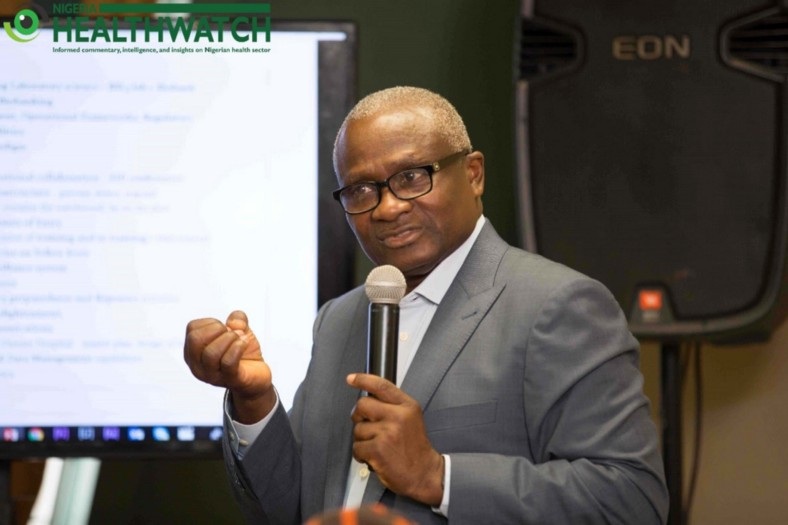The Nigeria Centre for Disease Control and Prevention (NCDC) has issued a nationwide public health alert, warning of a likely increase in waterborne and mosquito-borne diseases, including cholera, yellow fever, and dengue fever, as flash floods threaten several states in the country.
This alert, signed by NCDC Director-General Dr. Jide Idris, follows recent forecasts from the Nigerian Meteorological Agency (NiMet).
According to NiMet, states such as Sokoto, Kaduna, Zamfara, and Yobe, among others, are at high risk of severe flooding during the month of July.
“Floodwaters can compromise the safety of water sources by introducing harmful pathogens from contaminated soil, animal waste, and overflowing sewage systems,” the NCDC explained in its statement.
“This contamination poses a major threat to public health by increasing the risk of cholera outbreaks.”
The health agency has raised concerns based on recent cholera trends.
Between June 23 and 29, suspected cholera cases were reported across 34 states.
Zamfara State alone accounted for 32 percent of these cases.
Other states with high reported infections include Bayelsa, Adamawa, Delta, Lagos, and Rivers, suggesting a wide geographical spread and a growing burden on public health systems.
In addition to cholera, the NCDC also expressed concern about the rising threat of yellow fever and dengue fever.
Both of these diseases spread by mosquitoes that breed in stagnant water, which becomes more common in flood-prone areas.
These conditions, worsened by poor drainage and inadequate sanitation, provide ideal breeding grounds for disease-carrying mosquitoes.
In early June, between the 9th and 13th, an outbreak of dengue fever was confirmed in Edo State, with laboratory testing verifying the spike in cases.
The outbreak marks a significant health challenge, especially given the limited awareness and diagnostic capacity for dengue in many parts of the country.
Furthermore, seven confirmed cases of yellow fever have been detected across six states—Abia, Anambra, Edo, Ekiti, Lagos, and Rivers—though no deaths have been recorded.
“Even a single confirmed case of yellow fever is classified as an outbreak due to the disease’s potential for rapid transmission and high fatality if left untreated,” the agency stressed.
To address these growing concerns, the NCDC said it is working closely with state health authorities, partner organizations, and local communities.
Measures being taken include:
- enhancing disease surveillance systems,
- distributing medical supplies and treatment kits,
- deploying emergency response teams, and,
- conducting public awareness campaigns aimed at educating citizens on prevention and early detection.
The agency emphasized the importance of community engagement and individual responsibility in curbing the spread of these diseases.
It called on Nigerians to adopt and maintain good hygiene practices, such as frequent handwashing, ensuring food and water are clean and safe, and properly storing water in sealed containers.
Additionally, the NCDC advised households to eliminate sources of standing water around their homes to prevent mosquito breeding.
It also recommended the use of insecticide-treated mosquito nets and repellents, especially in flood-affected regions.
Vaccination remains a key preventive strategy, particularly for yellow fever, and citizens are urged to keep their immunizations up to date.
The statement concluded with a call to action for state governments: “We urge all state authorities to remain vigilant and step up surveillance efforts to ensure prompt identification and containment of any disease outbreaks.”
This alert comes at a critical time as climate-related events like flooding continue to intensify across Nigeria.
With already strained health infrastructure and ongoing challenges in sanitation and disease control, the NCDC’s warning underscores the urgent need for coordinated efforts to prevent a wider public health crisis in the weeks ahead.







